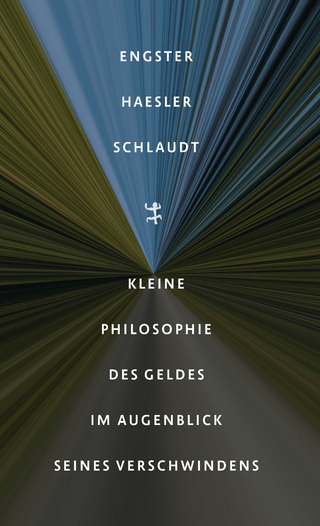
The Ontology of Death
The Philosophy of the Death Penalty in Literature
Seiten
2024
Bloomsbury Academic (Verlag)
978-1-350-33952-1 (ISBN)
Bloomsbury Academic (Verlag)
978-1-350-33952-1 (ISBN)
Through examination of the death penalty in literature, Aaron Aquilina contests Heidegger’s concept of ‘being-towards-death’ and proposes a new understanding of the political and philosophical subject.
Dickens, Nabokov, Hugo, Sophocles and many others explore capital punishment in their works, from Antigone to Invitation to a Beheading. Using these varied case studies, Aquilina demonstrates how they all highlight two aspects of the experience. First, they uncover a particular state of being, or more precisely non-being, that comes with a death sentence, and, second, they reveal how this state exists beyond death row, as sovereignty and alterity are by no means confined to a prison cell.
In contrast to Heidegger’s being-towards-death, which individualizes the subject – only I can die my own death, supposedly – this book argues that, when condemned to death, the self and death collide, putting under erasure the category of subjectivity itself. Be it death row or not, when the supposed futurity of death is brought into the here and now, we encounter what Aquilina calls ‘relational death’. Living on with death severs the subject’s relation to itself, the other and political sociality as a whole, rendering the human less a named and recognizable ‘being’ than an anonymous ‘living corpse’, a human thing.
In a sustained engagement with Blanchot, Levinas, Hegel, Agamben and Derrida, The Ontology of Death articulates a new theory of the subject, beyond political subjectivity defined by sovereignty and beyond the Heideggerian notion of ontological selfhood.
Dickens, Nabokov, Hugo, Sophocles and many others explore capital punishment in their works, from Antigone to Invitation to a Beheading. Using these varied case studies, Aquilina demonstrates how they all highlight two aspects of the experience. First, they uncover a particular state of being, or more precisely non-being, that comes with a death sentence, and, second, they reveal how this state exists beyond death row, as sovereignty and alterity are by no means confined to a prison cell.
In contrast to Heidegger’s being-towards-death, which individualizes the subject – only I can die my own death, supposedly – this book argues that, when condemned to death, the self and death collide, putting under erasure the category of subjectivity itself. Be it death row or not, when the supposed futurity of death is brought into the here and now, we encounter what Aquilina calls ‘relational death’. Living on with death severs the subject’s relation to itself, the other and political sociality as a whole, rendering the human less a named and recognizable ‘being’ than an anonymous ‘living corpse’, a human thing.
In a sustained engagement with Blanchot, Levinas, Hegel, Agamben and Derrida, The Ontology of Death articulates a new theory of the subject, beyond political subjectivity defined by sovereignty and beyond the Heideggerian notion of ontological selfhood.
Aaron Aquilina is a Resident Academic in the Department of English at the University of Malta, Malta. His work has been published in numerous journals, including Parallax, Textual Practice and Word and Text, in edited collections such as The Essay at the Limits,and he is the Founding General Editor of 'antae', an open-access, refereed, and international online journal.
Acknowledgements
Introduction: Literature, Questions, Death Dead Politics
Chapter 1: The Instant of My Death
Chapter 2: Death Penalties
Chapter 3: Missing Death
Chapter 4: After Death, Anonymity
Chapter 5: The Death of No One
Conclusion: The Death of Me
Bibliography
Index
| Erscheinungsdatum | 12.11.2024 |
|---|---|
| Verlagsort | London |
| Sprache | englisch |
| Maße | 156 x 234 mm |
| Themenwelt | Geisteswissenschaften ► Philosophie ► Metaphysik / Ontologie |
| Sozialwissenschaften ► Soziologie ► Mikrosoziologie | |
| ISBN-10 | 1-350-33952-0 / 1350339520 |
| ISBN-13 | 978-1-350-33952-1 / 9781350339521 |
| Zustand | Neuware |
| Haben Sie eine Frage zum Produkt? |
Mehr entdecken
aus dem Bereich
aus dem Bereich
Buch | Hardcover (2024)
Matthes & Seitz (Verlag)
28,00 €
Über konstruktivistisches Denken in der Theologie
Buch | Softcover (2024)
Verlag Herder
58,00 €


